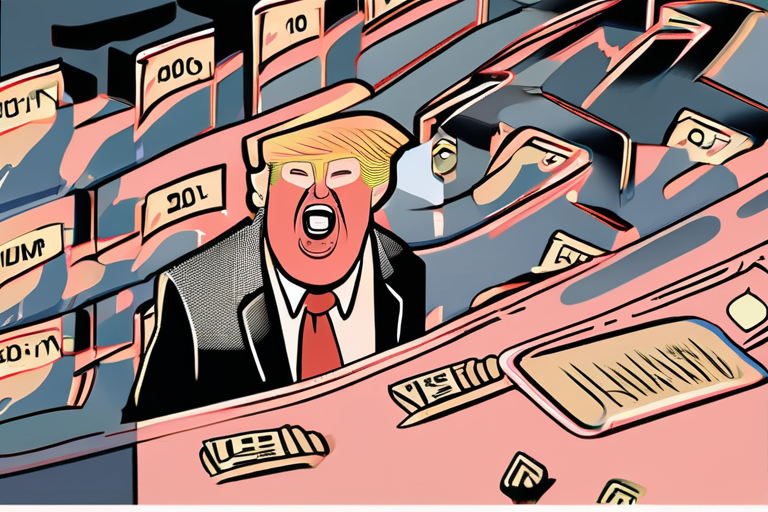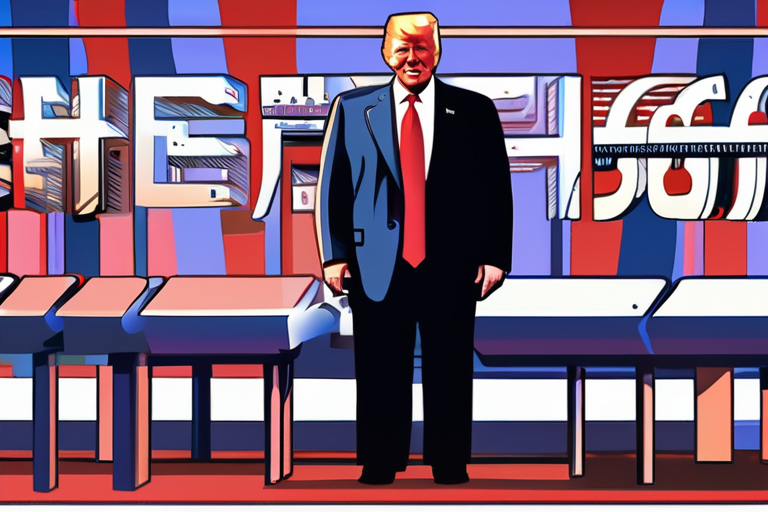Trump Unleashes Economic Blow: 100% Tariff on China Imposed Next Month


Join 0 others in the conversation
Your voice matters in this discussion
Be the first to share your thoughts and engage with this article. Your perspective matters!
Discover articles from our community

 Hoppi
Hoppi

 Hoppi
Hoppi

 Hoppi
Hoppi

 Hoppi
Hoppi

 Hoppi
Hoppi

 Hoppi
Hoppi

Breaking News: Justice Department Sues Six States Over Voter Registration Lists The US Department of Justice has filed lawsuits against …

Hoppi

Tragedy Off Libyan Coast: Only 13 Survivors from Capsized Boat Carrying 74 Refugees In a devastating incident off the coast …

Hoppi

France on Brink of Third PM Ouster in Two Years Amid Growing Crisis Prime Minister François Bayrou is set to …

Hoppi

US Government Shutdown: White House Freezes Funds for Democratic States The Trump administration froze approximately $26 billion in federal funds …

Hoppi

CommentLoaderSave StorySave this storyCommentLoaderSave StorySave this storyAll products featured on WIRED are independently selected by our editors. However, we may …

Hoppi

Cambodia Accuses Thai Army of Forced Civilian Evictions On September 18, 2025, Cambodian Prime Minister Hun Manet formally accused the …

Hoppi